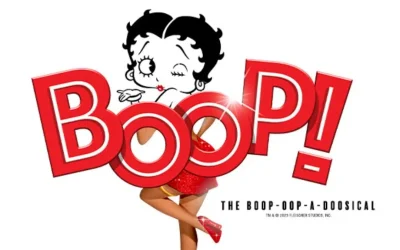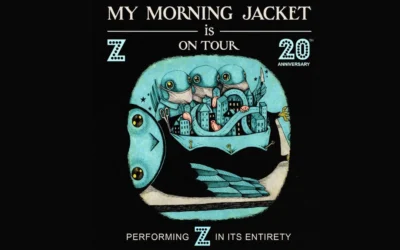Ticket reselling, more specifically the act of reselling concert and other event tickets often for more than face value, can end tomorrow. And it can end without any government intervention or cumbersome paperless tickets.
All artists and promoters have to do to end ticket reselling is either increase the number of tickets available (by increasing venue size or the number of shows in a given market) or raise prices so high that the demand for tickets decreases.
It’s that simple.
Of course, artists and promoters — who are in direct control of ticket supplies — don’t want to do that.
One reason they may not want to increase the number of tickets is because they’d lose the media buzz created by sellouts.
Artists and promoters don’t want to raise ticket prices (i.e. charge market value) either. They don’t want to bill $1,000 for front row seats or adopt dynamic ticket pricing because most performers have cultivated an image of being a free-spirit artist not a free-market capitalist.
In March of 2009, in a post on his band’s Web site, Nine Inch Nails’ Trent Reznor accurately sums up how most fans want their music artists to conduct business:
“If people are willing to pay a lot of money to sit up front AND ARE GOING TO ANYWAY thanks to the rigged system, why let that money go into the hands of the scalpers? I’m the one busting my a** up there every night. The conclusion really came down to it not feeling like the right thing to do — simple as that.”
Maybe NIN doesn’t use the “rigged system” but most artists do. Artists such as Neil Diamond, Bon Jovi, Van Halen, Celine Dion, Billy Joel, Elton John, Britney Spears, and Miley Cyrus have all withheld premium tickets and then sold them on the secondary ticket market. This practice certainly helps explain why fans can’t easily get tickets from the primary seller.
There’s another reason artists and promoters like to have ticket resellers around, they are great scapegoats. When fans get angry at the lack of tickets on the primary market and/or high prices on the secondary market, artists and promoters can always avoid criticism by blaming scalpers.
For instance, think back to 2007 when parents couldn’t get Hannah Montana tickets on the primary market?
“Somebody is buying up all these tickets, but it’s hard for me to fathom how they do it,” said Carole Bidon of Minnesota. “There’s these tickets at exorbitant prices all over the place. I don’t get it. I just don’t get it.”
Most fans don’t get it. Their ignorance of the ticket industry makes them automatically assume that the dearth of tickets is the fault of “evil scalpers” and not the altruistic artists.
“It’s pretty sad to see what capitalism does to people. Because when bums buy up all the tickets and sell them at more than 30 times their value, the [concert] experience is lost. Ruined. Perverted,” exclaims Dan Cleverland in his editorial “Ticket Scalpers Ruin Concerts” posted on flyernews.com.
Cleverland’s sentiments are echoed in another editorial, “Ticket Scalpers Quash the Sprit of Coachella,” found on cityonahillpress.com.
“Scalpers are the ones who have bought out nearly all of the over 75,000 tickets. A quick check across eBay, Craigslist and StubHub reveals plenty of tickets available, if you’re willing to pay at least three times the tickets’ original price,” laments the anonymous author.
It’s doubtful ticket resellers purchased nearly all of the 75,000 Coachella tickets.
Returning to the artists, besides Reznor, Pearl Jam, Bruce Springsteen, Tom Waits, and the supergroup Chickenfoot have all used, at one time or another, ticket resellers as scapegoats. However, none of those artists can touch the anti-scalping diatribe of LCD Soundsystem frontman, James Murphy.
Never heard of LCD Soundsystem? Not many people had until Murphy derided the secondary ticket market after his band’s April 2 farewell show at Madison Square Garden sold out so fast it angered fans.
Murphy took to the internet and immediately blamed ticket resellers. He did so on Twitter and in a poorly written, profanity-laced rant that he posted on his band’s Web site. The rambling tome revealed Murphy’s enormous ignorance of the ticket industry.
“we tried calling our lawyer about the ticket scalping. “It’s legal”. no joke. it’s f***king legal, [sic]” sneered Murphy.
In response to the sold out MSG show, LCD Soundsystem added four shows at New York’s Terminal 5—the exact thing they should have done in the first place had they really wanted to stop ticket reselling.
The fact that they were able to book four shows at a popular venue in New York is one of the reasons Richard Kastelein thinks it was the band, not ticket resellers, who were responsible for the ticket famine.
“Terminal 5 is always busy, four to six nights a week, every week. Strange that it is dark for 12 days straight. It’s NEVER dark for that long, so it’s safe to assume Terminal 5 dates were part of this dog and pony show all along with the secondary market as the scapegoat to enable this miraculous offer to fans? StubHub saw no appreciable increase in supply after the public sale,” explained Kastelein in a euticketnews.com article.
Kastelein then asks what’s more likely, ticket resellers conspiring to buy all of the LCD Soundsystem tickets and then not putting them up for sale or the band and promoter orchestrating a money grab and media blitz?
Those familiar with the ticket industry already know that most resellers are fans looking to sell tickets they can no longer use. The ticket resellers that do operate a business are hard-working, law abiding, mom-and-pop outfits that take huge risks and often resell tickets for a loss.
Ticket resellers make good scapegoats because they’re not an organized group with a defined spokesperson. Blaming ticket resellers is like blaming left-handers or people born on a Tuesday. In other words, it’s nearly impossible for them to fight back. It also doesn’t help that the pejorative for ticket reseller is “scalper,” a word that connotes both criminality and unscrupulousness.
Speaking of words, the last one goes to Professor Mark J. Perry. In his article “The Economics and Logic of Ticket Scalping” the professor elegantly assigns culpability to the artist, not the ticket reseller.
“For bands to complain about ticket scalping is really to acknowledge the band’s faulty under-estimation of fan demand, and the blame should therefore be directed at the band for under-supplying tickets to its performances, not towards the greed of secondary ticket brokers.”
Ryan Hogan writes about numerous facets of the ticket industry for the website Clickitticket.com. He’s penned articles on everything from Chinese train ticket scalpers to the best rock festivals in America to professional bull riders.



